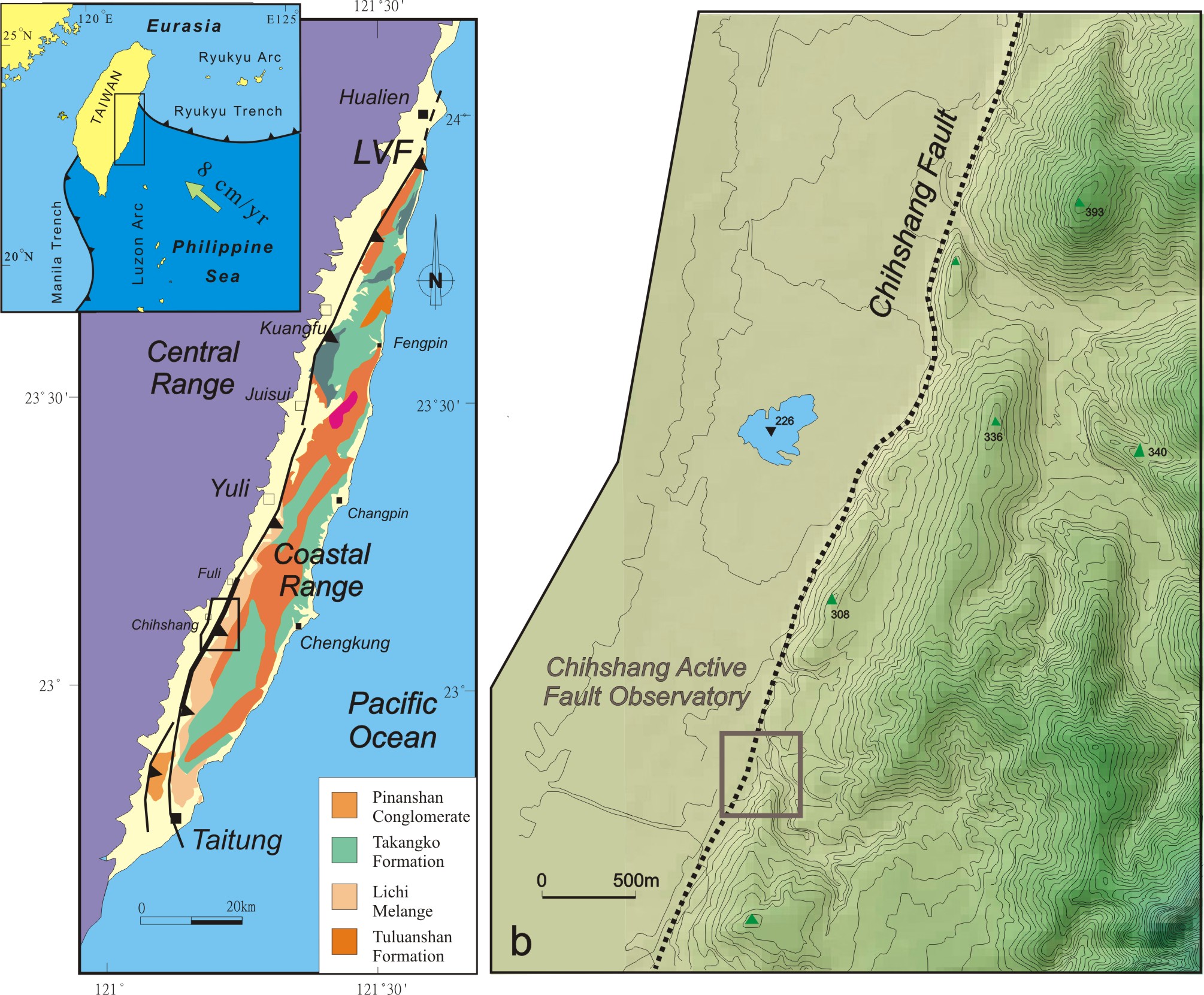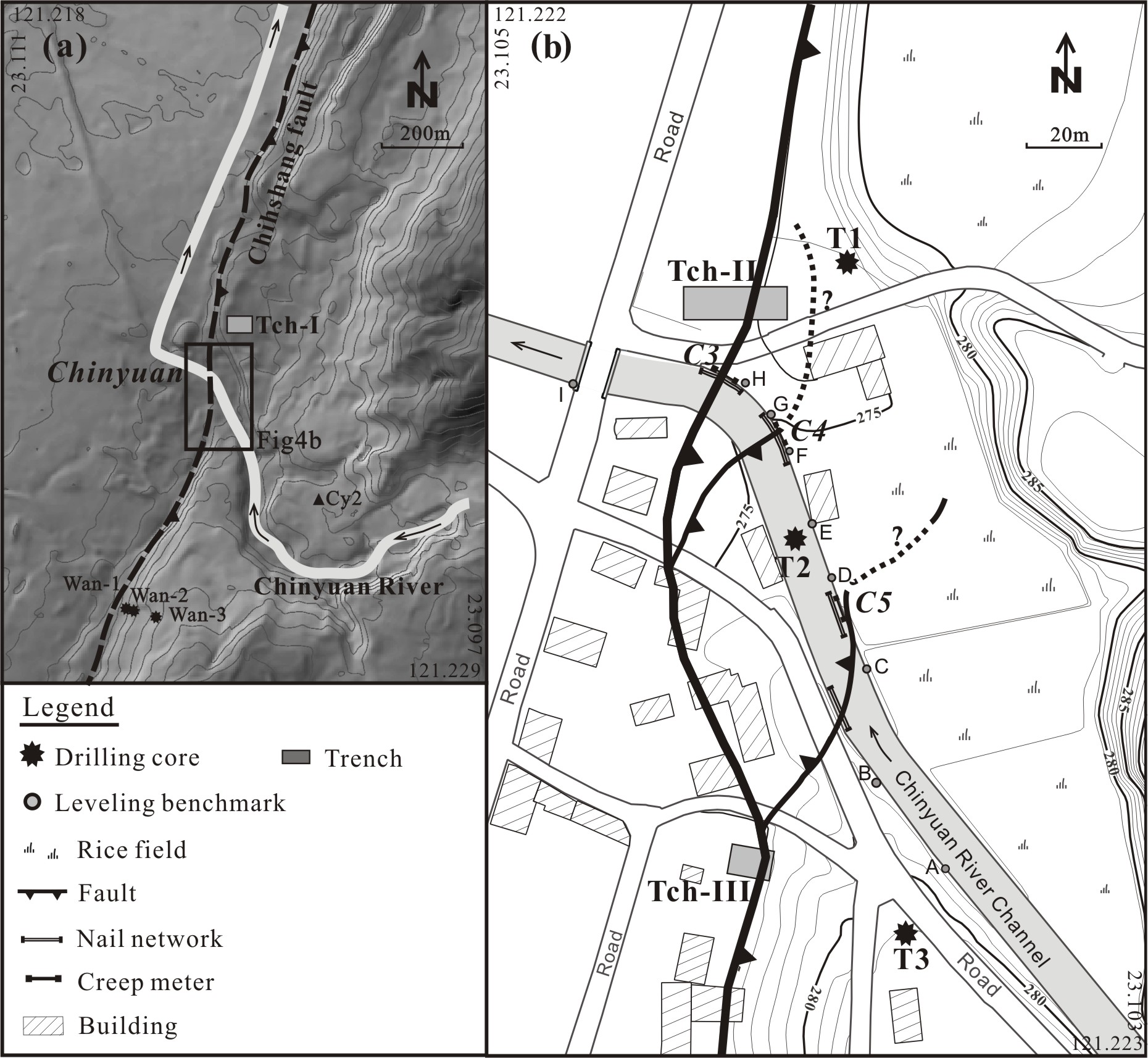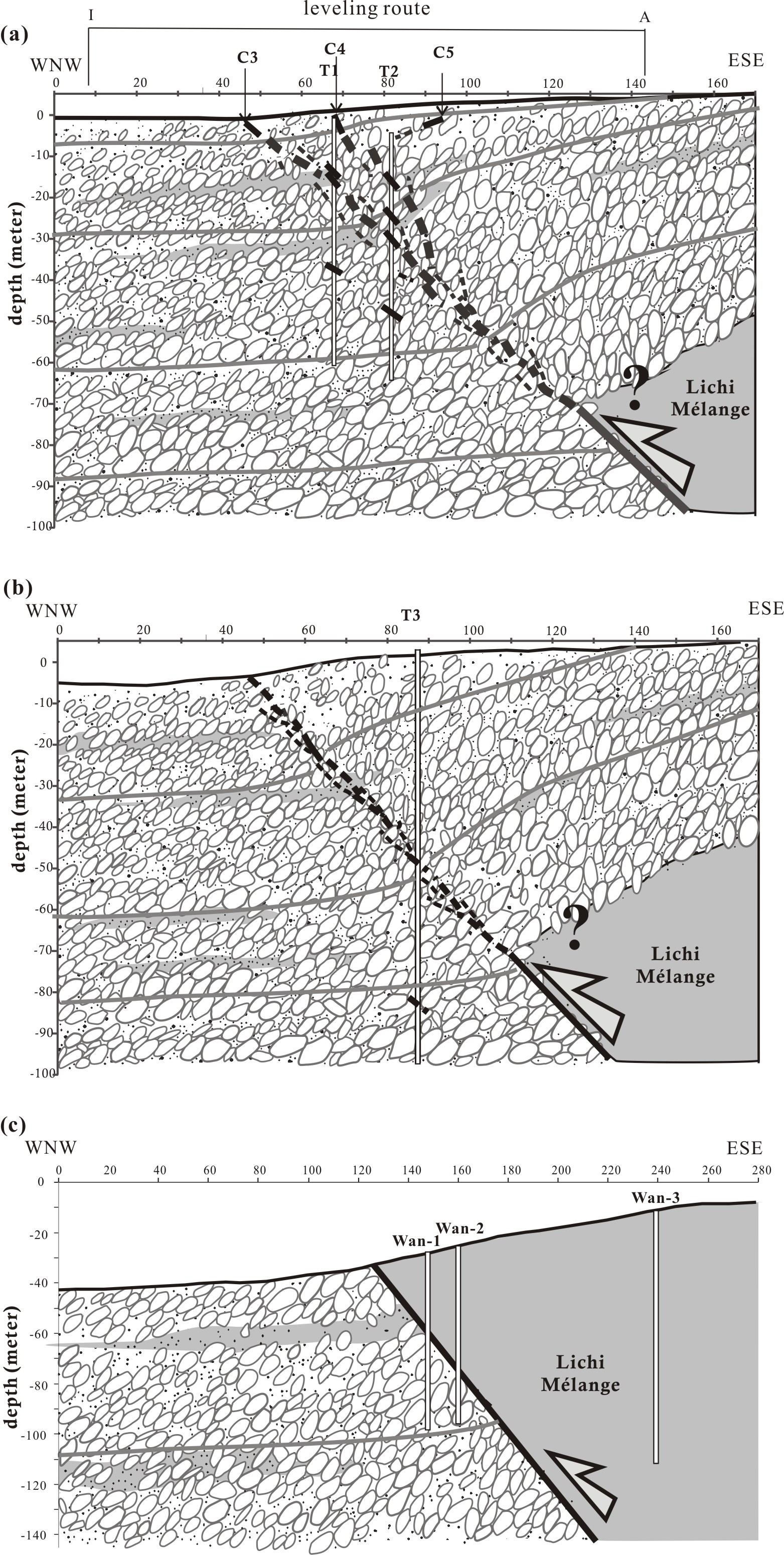
We conduct a multi-disciplinary on-site measurements and experiments at Chinyuan village, to monitoring the activity of the Chihshang. The instrumentation includes creep meter, leveling, GPS, trilateration, Broadband Seismometer, Groudwater level (including pumping and injection tests), Electric resistivity, Noble gas measurements, etc. Althouth we intend to first characterize surface deformation and slip rate of the fault movement at the near surface level, however, the subsurface fault activity and behaviors in the seismogenic zone at 10-20 km depth are also our next scientific targets.
Setting and location

Tectonic and Geological setting of the Chihshang Fault and the location of the Chihshang Active Fault Observatory
Local geological feature
Topograpy and surface trace of the Chihshang fault around the Chinyuan Villiage. We can observe three strands of faults developed in the alluvail deposits of the Chinyuan River, including two west-vergent thrusts and one east-vergent backthrust.. Outside of the alluvial deposits, one singel fault dominates and follows closely the topographic scarp between the Coastal Range and Longitudinal Valley.

(From Mu et al., Journal of Structural Geology, 2011)
1. Surface deformation
To be developed
2. Seismicity
To be developed
3. Groundwater variation
To be developed
4. Geological structures at near surface level
Based on core analysis from boreholes and surface leveling and creep meter measurements, we reconstruct subsurface geological profiles across the Chihshang Fault at the site of Chihshang Observatory.

(From Mu et al., Journal of Structural Geology, 2011)
5. Noble Gas signals
To be developed.